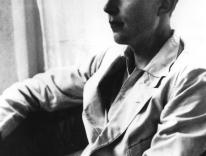Timothy Garton-Ash in reporting events in Czechoslovakia, captured the thrilling, unexpected, and "revolutionary" overturn of Communism in favor of a genuine democracy. His account published in the New York Review of Books (December 21, 1989) shows how democracy was achieved by democratic and peaceful means. The NYR has republished that account, still stirring, still seeming a miracle of human ingenuity and energy.Some excerpts: "If one had to describe Havels leadership, Max Webers often misused term charismatic would for once be apt. It was extraordinary the degree to which everything ultimately revolved around this one man. In almost all the Forums major decisions and statements he was the final arbiter, the one person who could somehow balance the very different tendencies and interests in the movement. In this sense, as in Solidarity, many decisions were not made democratically. Yet a less authoritarian personality than Havel it would be hard to imagine. (The contrast with Lech Walesa is striking.) And the meetings of the plenum were almost absurdly democratic. The avuncular Radim Palou was an exemplary chairman. Everyone had his or her say. Important issues were decided by vote. At one point, an assembly of perhaps two hundred people was editing the latest Forum communiqu, line by line."MOBS: And the Catholic Church had a role to play in all of this, not the same as Poland, but equally significant. (Remember the days when the Catholic Church was a defender of the democratic, even a practitioner in some of its own precincts!)"After Dubcek comes Havel. Dubcek-Havel they chant, the name of 68 and the name of 89. (People point out with delight that 89 is 68 turned upside down.) Then Vclav Mal, the banned padre, reads a message from the man he calls the third great symbol of this movement, the ninety-year-old Frantiek Cardinal Tomek. The Catholic Church stands entirely on the side of the people in their present struggle, says the message. I thank all those who are fighting for the good of us all and I trust completely the Civic Forum which has become a spokesman for the nation. Long live Tomek, they cry, but I notice that when Mal later strikes up the old Czech Wenceslas hymn, much of the crowd either do not know the words or are reluctant to sing them. A striking contrast with Poland."And the memorable shaking of keys, like church bells, by the huge crowd. "Day Eighteen (Monday, December 4). Three forty-five. Wenceslas Square. Despite the freezing cold, the demonstration will be huge, and a success. Of course it will. Everyone knows it. They file into the square slowly and matter-of-factly, as if they had been doing this for years. A few minutes before four, they start warming-up with the familiar chants, Nows the time! Resignation! and ringing the keys. Long live the students they cryis there another city in the world where you would hear that? Long live the actors.


